In This Section
At the heart of the IB framework is inquiry- based learning, encouraging young learners to explore and make sense of the world around them. Through meaningful learning invitations and provocations, children ask questions, think critically, and develop essential knowledge, skills, and attitudes through play.
A Typical Day in the EY Program
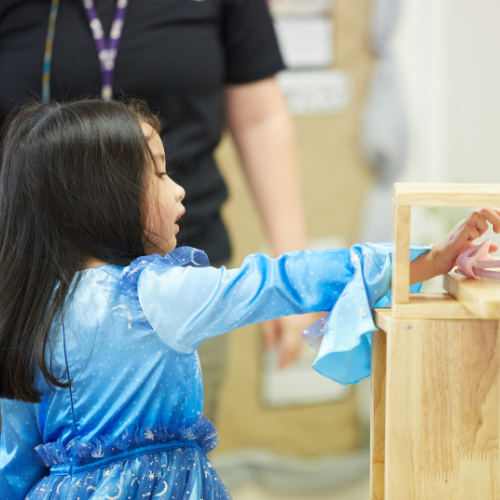
Self Management
Entering independently and caring for their belongings.
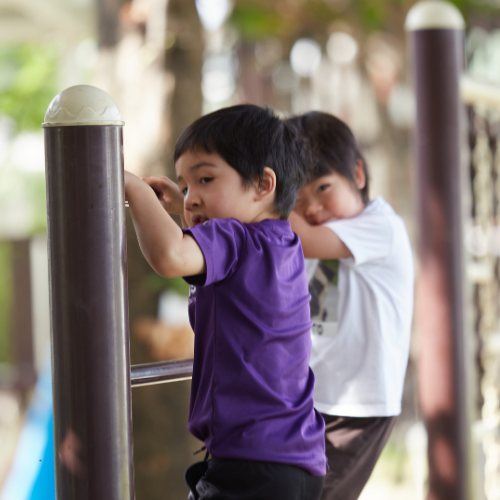
Exploration
Engaging in homeroom and outdoor learning spaces such as the playground, soccer field, and farm.
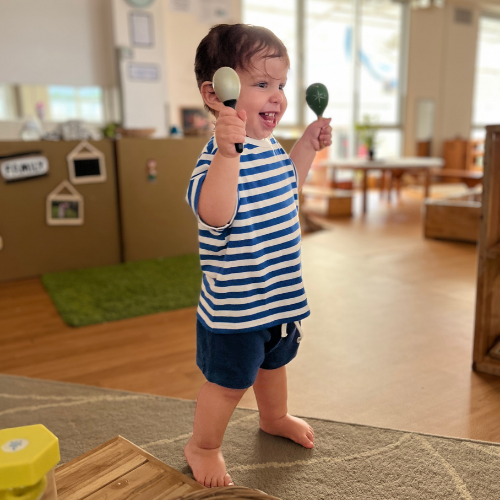
Specials Classes
Music & Movement, Design Technology, Physical Education, Swimming, Art and Thai.
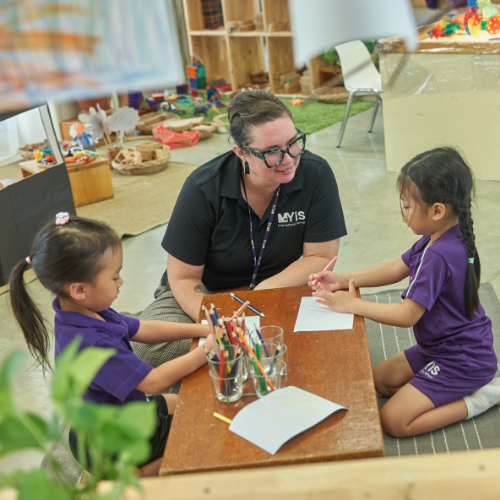
Social Time
Snack and lunch breaks provide opportunities to relax and build connections with peers.
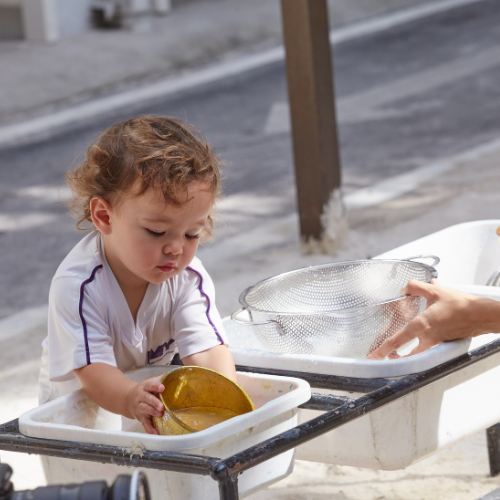
Holistic Growth
Every moment is designed to support their agency as learners and social-emotional development.
Fostering Social-Emotional Development and Independence
Inspired by the Positive Discipline approach, our program promotes emotional awareness, empathy, and respectful communication. Children are encouraged to express their feelings, regulate behavior through problem-solving, and take ownership of their actions. By setting clear and consistent expectations, we nurture a growth mindset, emotional resilience, and social competence, empowering children to become confident, independent learners.
The Role of Play-Based Learning and Hands-On Activities
Play-based learning is central to our IB approach, offering young learners meaningful opportunities to explore, experiment, and make sense of their world. Through play, children develop:
- Curiosity and Creativity: Encouraging them to ask questions and think innovatively.
- Critical Thinking: Problem-solving and making connections.
- Social-Emotional Skills: Engaging in collaboration and communication.
- Hands-On Experiences: Deepening understanding through active participation.
Gradual Separation Program
For our 1-3 year old learners (Trust & Caring up to Joy & Confidence), we follow a Separation Program where parents or caregivers can come with the child from their first day of class for up to 6 weeks. This helps young learners comfortably transition into a school routine.
This gradual process means the caregiver, teacher, and student work as a team towards separation. At the start of the program, it may look like a caregiver staying in the mornings until the child is engaged and ready to say goodbye. Occasionally a caregiver stays for the first day of school, if the child is not at all ready to say goodbye. In order to support the process, there are things the teacher will encourage like being boring, sitting in one spot.
We believe separation is a very sensitive process both for the parent and the child and if handled well, it fosters in the child the quality of trust and risk-taking which will stay with them for the rest of their lives.